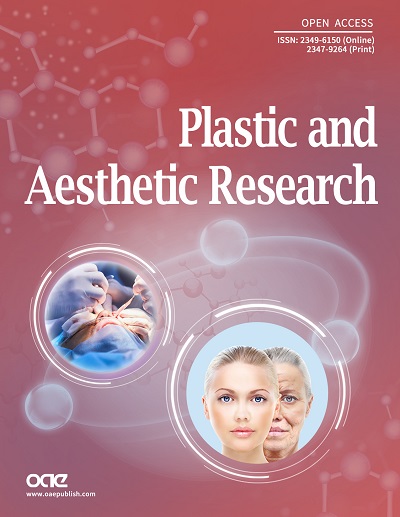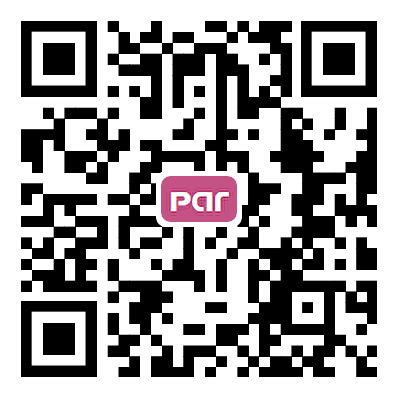Contents
Chair(s)
Dr. Aaron Dingle
Division of Plastic Surgery, University of Wisconsin School of Medicine and Public Health, Madison, WI, USA.
Dr. Samuel Poore
Division of Plastic Surgery, University of Wisconsin School of Medicine and Public Health, Madison, WI, USA.
Speaker(s)
Dr. Ishith Seth
Department of Plastic and Reconstructive Surgery, Peninsula Health, Frankston, Australia.
Topic: Use of Ten Test for Hand Trauma and Correlation with Intra-operative Nerve Injuries: Multi-centeric AnalysisBiography
Dr. Ishith Seth is a Plastic Surgery Registrar in the Plastic Surgery Department at Peninsula Health in Victoria, Australia, and Plastic Surgery Research Fellow at Austin Health, Victoria, Australia. He also serves as a Clinical tutor at Monash University. As a recognised expert, he has been an invited speaker at over 50 national and international conferences, sharing insights into the future intersections of medicine and technology. His multidisciplinary research interests, innovative surgical approaches, and significant contributions to medical literature establish Dr. Ishith Seth is a distinguished figure in the rapidly evolving fields of medical science and education.
Dr. Ishith Seth is a Plastic Surgery Registrar in the Plastic Surgery Department at Peninsula Health in Victoria, Australia, and Plastic Surgery Research Fellow at Austin Health, Victoria, Australia. He also serves as a Clinical tutor at Monash University. As a recognised expert, he has been an invited speaker at over 50 national and international conferences, sharing insights into the future intersections of medicine and technology. His multidisciplinary research interests, innovative surgical approaches, and significant contributions to medical literature establish Dr. Ishith Seth is a distinguished figure in the rapidly evolving fields of medical science and education.
Dr. Samuel Poore
Division of Plastic Surgery, University of Wisconsin School of Medicine and Public Health, Madison, WI, USA.
Topic: Osseointegrated Neural Interface (ONI): Advanced Strategies for Combined Neural Interfacing and Neuroma TreatmentBiography
Dr. Samuel Poore is the Associate Professor and Chair of the Division of Plastic Surgery, University of Wisconsin School of Medicine and Public Health. Dr. Poore was named the inaugural holder of the Endowed Chair of Global Education in Plastic and Reconstructive Surgery. He is board certified by the American Board of Plastic Surgery. Dr. Poore has authored 126 peer reviewed scientific journal articles. He specializes in microvascular surgery with an emphasis on breast reconstruction, and reconstruction of the adult face, trunk, extremities and head and neck. He has special interest in limb salvage and the treatment of amputation pain with targeted muscle reinnervation (TMR) and regenerative peripheral nerve interface (RPNI).
Dr. Samuel Poore is the Associate Professor and Chair of the Division of Plastic Surgery, University of Wisconsin School of Medicine and Public Health. Dr. Poore was named the inaugural holder of the Endowed Chair of Global Education in Plastic and Reconstructive Surgery. He is board certified by the American Board of Plastic Surgery. Dr. Poore has authored 126 peer reviewed scientific journal articles. He specializes in microvascular surgery with an emphasis on breast reconstruction, and reconstruction of the adult face, trunk, extremities and head and neck. He has special interest in limb salvage and the treatment of amputation pain with targeted muscle reinnervation (TMR) and regenerative peripheral nerve interface (RPNI).
Dr. Aaron Dingle
Division of Plastic Surgery, University of Wisconsin School of Medicine and Public Health, Madison, WI, USA.
Topic: Trigeminal Nerve Stimulation: Enhancing Outcomes Following Peripheral Nerve Injury
Topic: Trigeminal Nerve Stimulation: Enhancing Outcomes Following Peripheral Nerve Injury
Biography
Dr. Aaron M. Dingle is a Scientist III (Senior Scientist), Adjunct Instructor and Co-Director of the Microsurgery and Regenerative Medicine (MSRM) Laboratory in the Department of Surgery, University of Wisconsin School of Medicine and Public Health, Division of Plastic Surgery.
Dr. Dingle has a Ph.D in tissue engineering from the University of Melbourne, Australia. His research focuses on restoring/replacing limb function for persons living with amputation. Dr. Dingle manages a board and comprehensive federally funded research portfolio that includes neural interfacing for prosthetic control and bioelectric medicine, repair and regeneration of nerves, tendons and bone, as well as preservation and transplantation of vascular composite allografts.
Dr. Aaron M. Dingle is a Scientist III (Senior Scientist), Adjunct Instructor and Co-Director of the Microsurgery and Regenerative Medicine (MSRM) Laboratory in the Department of Surgery, University of Wisconsin School of Medicine and Public Health, Division of Plastic Surgery.
Dr. Dingle has a Ph.D in tissue engineering from the University of Melbourne, Australia. His research focuses on restoring/replacing limb function for persons living with amputation. Dr. Dingle manages a board and comprehensive federally funded research portfolio that includes neural interfacing for prosthetic control and bioelectric medicine, repair and regeneration of nerves, tendons and bone, as well as preservation and transplantation of vascular composite allografts.
Dr. Ipek Berberoglu
Department of Surgery, The University of Michigan Health System, Ann Arbor, MI, USA.
Topic: Regenerative Peripheral Nerve Interfaces (RPNIs)
Topic: Regenerative Peripheral Nerve Interfaces (RPNIs)
Biography
Ipek Berberoglu is a medical student at Koc University School of Medicine in Istanbul, Turkey. She completed summer research internships at the University of Michigan and Johns Hopkins to develop surgical strategies for pain and prosthetic control for individuals with amputation. After finishing her 5th year in medical school, she allocated 2 gap years for full-time research work in the University of Michigan Neuromuscular Lab. Under the mentorship of Dr. Paul S. Cederna and Dr. Stephen W.P Kemp, she designed translational animal models to improve patient outcomes and led clinical studies in peripheral nerve injury. After completing medical school, she plans to pursue academic plastic and reconstructive surgery training in the US to optimize surgical care for vulnerable patients.
Ipek Berberoglu is a medical student at Koc University School of Medicine in Istanbul, Turkey. She completed summer research internships at the University of Michigan and Johns Hopkins to develop surgical strategies for pain and prosthetic control for individuals with amputation. After finishing her 5th year in medical school, she allocated 2 gap years for full-time research work in the University of Michigan Neuromuscular Lab. Under the mentorship of Dr. Paul S. Cederna and Dr. Stephen W.P Kemp, she designed translational animal models to improve patient outcomes and led clinical studies in peripheral nerve injury. After completing medical school, she plans to pursue academic plastic and reconstructive surgery training in the US to optimize surgical care for vulnerable patients.
Dr. Néha Datta
Plastic & Reconstructive Surgery and Otolaryngology, Facial and Craniofacial Reconstruction, Washington University School of Medicine, St. Louis, MO, USA.
Department of Plastic and Reconstructive Surgery, Johns Hopkins University School of Medicine, Baltimore, MD, USA.
Topic: Leveraging Emerging Imaging Innovations to Guide Cranial Nerve Repair
Biography
Dr. Néha Datta is the Director of Facial and Craniofacial Reconstruction at Washington University School of Medicine in St. Louis, where she integrates innovative surgical techniques and cutting-edge imaging technologies to deliver personalized care for patients with traumatic and congenital conditions. Dr. Datta earned her BS in Bioengineering from Rice University and her MD from the Harvard-MIT Health Sciences and Technology Program. Her work has been recognized with numerous awards, including the Leonard Tow Humanism in Medicine Award, Best Research Paper from the American Society of Reconstructive Microsurgery, and the Young Investigator Award from the Transplantation Society. Dr. Datta has authored high impact peer-reviewed publications, book chapters, and presentations on topics ranging from facial trauma to reconstructive transplantation.
Dr. Néha Datta is the Director of Facial and Craniofacial Reconstruction at Washington University School of Medicine in St. Louis, where she integrates innovative surgical techniques and cutting-edge imaging technologies to deliver personalized care for patients with traumatic and congenital conditions. Dr. Datta earned her BS in Bioengineering from Rice University and her MD from the Harvard-MIT Health Sciences and Technology Program. Her work has been recognized with numerous awards, including the Leonard Tow Humanism in Medicine Award, Best Research Paper from the American Society of Reconstructive Microsurgery, and the Young Investigator Award from the Transplantation Society. Dr. Datta has authored high impact peer-reviewed publications, book chapters, and presentations on topics ranging from facial trauma to reconstructive transplantation.
Prof. Elizabeth Torrez
Psychology Department, Rutgers University Center for Cognitive Science, Computational Biomedicine Imaging and Modeling Center, Computer Science Department, Piscataway, NJ, USA.
Topic: On the Formation of Internal Models of Timely Volition: Leveraging the Concept of Kinesthetic Reafference to Causally Bridge Cognition and Movement
Topic: On the Formation of Internal Models of Timely Volition: Leveraging the Concept of Kinesthetic Reafference to Causally Bridge Cognition and Movement
Biography
Professor Elizabeth (Liz) Torres, PhD is the Director of the Sensory Motor Integration Laboratory at Rutgers University. In the last decade alone, her lab has contributed over 10million dollars towards research and produced over 130 peer reviewed papers, inclusive of multiple e-Books collaboratively co-edited with researchers worldwide. She has written 4 books, multiple invited book Chapters and holds 4 US granted patents and 5 provisional patents, all related to neurodevelopment, volition, and the detection and tracking of neurological disorders. Torres footprint spans a large international network of collaborators who are early adopters of her technologies. Her contributions to society include developing highly scalable models aimed at diversifying science, attaining equity in medical practices and advancing the concepts of digital health and wellness.
Professor Elizabeth (Liz) Torres, PhD is the Director of the Sensory Motor Integration Laboratory at Rutgers University. In the last decade alone, her lab has contributed over 10million dollars towards research and produced over 130 peer reviewed papers, inclusive of multiple e-Books collaboratively co-edited with researchers worldwide. She has written 4 books, multiple invited book Chapters and holds 4 US granted patents and 5 provisional patents, all related to neurodevelopment, volition, and the detection and tracking of neurological disorders. Torres footprint spans a large international network of collaborators who are early adopters of her technologies. Her contributions to society include developing highly scalable models aimed at diversifying science, attaining equity in medical practices and advancing the concepts of digital health and wellness.
Dr. Stephen Kemp
Department of Surgery, Section of Plastic Surgery, University of Michigan, Ann Arbor, MI, USA.
Topic: Regenerative Peripheral Nerve Interfaces for Complex Prosthetic ControlBiography
Dr. Stephen Kemp is an Associate Professor with tenure at The University of Michigan in the Department of Surgery and is currently the Director of the Neuromuscular Lab. He is also an Associate Editor at Muscle & Nerve. The primary goal of his laboratory is to understand and investigate mechanisms of peripheral nerve regeneration following nerve injury and repair. The core program of his lab focuses on utilizing peripheral nerves to restore motor and sensory control to both prosthetic and exoskeleton devices. His lab is also interested in chronic pain pathways following nerve injury. Dr. Kemp has been the Principal or Co-Investigator on 22 externally funded grants totaling over $15 million dollars in funding. He has published 64 peer-reviewed journal articles that have a cumulative citation count of 3311 and a current h-index of 31. Dr. Kemp has held grants from the National Institutes of Health (NIH), Department of Defense (DoD), Defense Advanced Research Projects Agency (DARPA), Plastic Surgery Foundation (PSF), and the American Foundation for Surgery of the Hand (AFSH).
Dr. Stephen Kemp is an Associate Professor with tenure at The University of Michigan in the Department of Surgery and is currently the Director of the Neuromuscular Lab. He is also an Associate Editor at Muscle & Nerve. The primary goal of his laboratory is to understand and investigate mechanisms of peripheral nerve regeneration following nerve injury and repair. The core program of his lab focuses on utilizing peripheral nerves to restore motor and sensory control to both prosthetic and exoskeleton devices. His lab is also interested in chronic pain pathways following nerve injury. Dr. Kemp has been the Principal or Co-Investigator on 22 externally funded grants totaling over $15 million dollars in funding. He has published 64 peer-reviewed journal articles that have a cumulative citation count of 3311 and a current h-index of 31. Dr. Kemp has held grants from the National Institutes of Health (NIH), Department of Defense (DoD), Defense Advanced Research Projects Agency (DARPA), Plastic Surgery Foundation (PSF), and the American Foundation for Surgery of the Hand (AFSH).
Dr. William Padovano
Department of Plastic and Reconstructive Surgery, Johns Hopkins University, School of Medicine, Baltimore, MD, USA.
Topic: Molecular Imaging for Peripheral Nervous System Injuries
Topic: Molecular Imaging for Peripheral Nervous System Injuries
Biography
Dr. William Padovano is a plastic surgery resident at Johns Hopkins and a researcher in the Dr. Sami Tuffaha Peripheral Nerve Surgery Lab. His primary academic interests are in translational peripheral nerve surgical research, with an emphasis on developing technologies to improve the diagnosis, monitoring, and treatment of nerve injuries. Dr. Padovano received the Goldner Pioneer Research Award from the American Society for Surgery of the Hand in 2023 and his research has been selected twice for presentation at the AAHS/ASRM/ASPN Joint Outstanding Paper Session (2024 and 2025). He has secured over $3 million in funding from multiple DOD and foundation grants to support his research efforts.
Dr. William Padovano is a plastic surgery resident at Johns Hopkins and a researcher in the Dr. Sami Tuffaha Peripheral Nerve Surgery Lab. His primary academic interests are in translational peripheral nerve surgical research, with an emphasis on developing technologies to improve the diagnosis, monitoring, and treatment of nerve injuries. Dr. Padovano received the Goldner Pioneer Research Award from the American Society for Surgery of the Hand in 2023 and his research has been selected twice for presentation at the AAHS/ASRM/ASPN Joint Outstanding Paper Session (2024 and 2025). He has secured over $3 million in funding from multiple DOD and foundation grants to support his research efforts.
Dr. Paolo Titolo
Head of the Microsurgery Unit, Department of Orthopedics and Traumatology, CTO Hospital of Turin, Turin, Italy.
Topic: Nerve Transfers in Tetraplegia
Topic: Nerve Transfers in Tetraplegia
Biography
Dr. Paolo Titolo is a medical professional specializing in peripheral nerve surgery, microsurgery, and hand surgery. Currently leading the Department of Microsurgery at A.O. Città della Salute e della Scienza in Turin, Dr. Titolo focuses on reconstructive techniques for peripheral nerve injuries and has contributed to advancements in brachial plexus and tetraplegia treatments. His work is documented in various scientific publications. An active member of the Italian Society of Microsurgery, Dr. Titolo participates in research projects and academic activities, sharing his expertise through teaching and conferences. Combining clinical practice with a commitment to innovation, he continues to contribute to the development of effective solutions for complex surgical challenges.
Dr. Paolo Titolo is a medical professional specializing in peripheral nerve surgery, microsurgery, and hand surgery. Currently leading the Department of Microsurgery at A.O. Città della Salute e della Scienza in Turin, Dr. Titolo focuses on reconstructive techniques for peripheral nerve injuries and has contributed to advancements in brachial plexus and tetraplegia treatments. His work is documented in various scientific publications. An active member of the Italian Society of Microsurgery, Dr. Titolo participates in research projects and academic activities, sharing his expertise through teaching and conferences. Combining clinical practice with a commitment to innovation, he continues to contribute to the development of effective solutions for complex surgical challenges.
Programme
Programme
| Time (USA, UTC-6) | Speakers | Topics |
|---|---|---|
| 07:00-07:05 | Dr. Samuel Poore | Welcome Speech |
| 07:05-07:15 | Dr. Aaron Dingle | Journal Introduction |
| 07:15-07:30 | Dr. Stephen Kemp | Regenerative Peripheral Nerve Interfaces for Complex Prosthetic Control |
| 07:30-07:35 | All | A Panel Discussion |
| 07:35-07:50 | Dr. Ipek Berberoglu | Regenerative Peripheral Nerve Interfaces (RPNIs) |
| 07:50-07:55 | All | A Panel Discussion |
| 07:55-08:10 | Dr. Aaron Dingle | Trigeminal Nerve Stimulation: Enhancing Outcomes Following Peripheral Nerve Injury |
| 08:10-08:15 | All | A Panel Discussion |
| 08:15-08:30 | Dr. Ishith Seth | Use of Ten Test For Hand Trauma and Correlation with Intra-operative Nerve Injuries: Multi-centeric Analysis |
| 08:30-08:35 | All | A Panel Discussion |
| 08:35-08:50 | Dr. Samuel Poore | Osseointegrated Neural Interface (ONI): Advanced Strategies for Combined Neural Interfacing and Neuroma Treatment |
| 08:50-08:55 | All | A Panel Discussion |
| 08:55-09:10 | Dr. William Padovano | Molecular Imaging for Peripheral Nervous System Injuries |
| 09:10-09:15 | All | A Panel Discussion |
| 09:15-09:30 | Prof. Elizabeth Torrez | On the Formation of Internal Models of Timely Volition: Leveraging the Concept of Kinesthetic Reafference to Causally Bridge Cognition and Movement |
| 09:30-09:35 | All | A Panel Discussion |
| 09:35-09:50 | Dr. Paolo Titolo | Nerve Transfers in Tetraplegia |
| 09:50-09:55 | All | A Panel Discussion |
| 09:55-10:10 | Dr. Néha Datta | Leveraging Emerging Imaging Innovations to Guide Cranial Nerve Repair |
| 10:10-10:15 | All | A Panel Discussion |
| 10:15-10:20 | Dr. Samuel Poore | Summary |
Moments
Presentation

Journal Introduction
NaN

Dr. Stephen Kemp
Regenerative Peripheral Nerve Interfaces for Complex Prosthetic Control
NaN

Dr. Ipek Berberoglu
Regenerative Peripheral Nerve Interfaces (RPNI) for the Prevention and Treatment of Postamputation Pain
NaN

Dr. Aaron Dingle
Trigeminal Nerve Stimulation: Enhancing Outcomes Following Peripheral Nerve Injury
NaN

Dr. Néha Datta
Leveraging Emerging Imaging Innovations to Guide Cranial Nerve Repair
NaN

Dr. Samuel Poore
Osseointegrated Neural Interface (ONI): Advanced Strategies for Combined Neural Interfacing and Neuroma Treatment
NaN

Dr. William Padovano
Molecular Imaging for Peripheral Nervous System Injuries
NaN

Prof. Elizabeth Torrez
On the Formation of Internal Models of Timely Volition: Leveraging the Concept of Kinesthetic Reafference to Causally Bridge Cognition and Movement
NaN

Dr. Ishith Seth
Use of Ten Test For Hand Trauma and Correlation with Intra-operative Nerve Injuries: Multi-centeric Analysis
NaN

Dr. Paolo Titolo
Nerve Transfers in Tetraplegia
NaN








